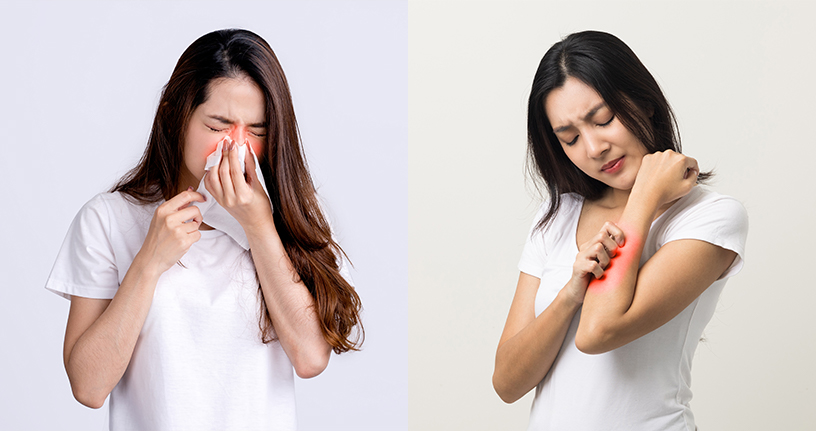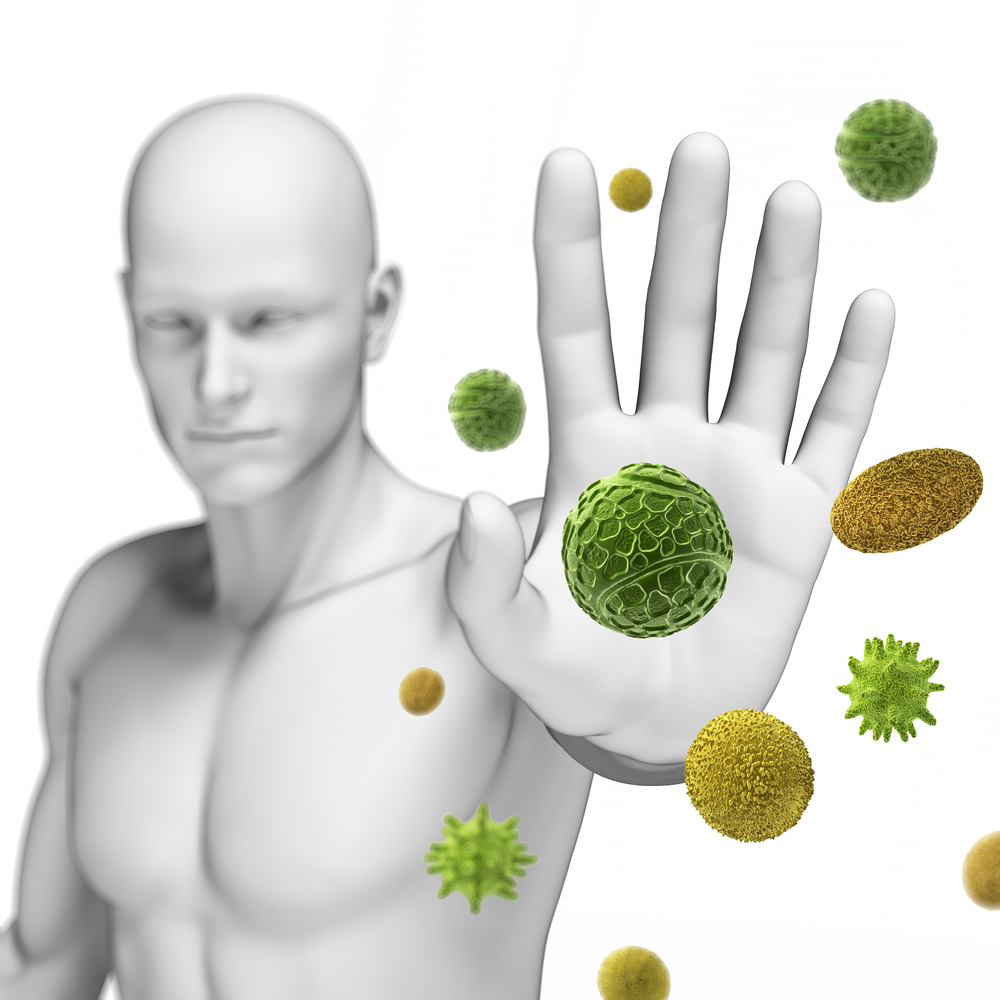Irritated skin can indicate a skin allergy, during which the immune system reacts to something usually harmless. This is called an allergic reaction. An allergic reaction can cause rash, itching, redness, bumps, hives, and swelling. Many different allergens can cause an allergic reaction. This guide will explore types of skin allergies, their causes, symptoms, and treatments.
Understanding skin allergies causes, symptoms, and treatments.
The skin is considered the largest immunologic organ and is often a target for allergic and immunologic responses. Many skin diseases, including contact dermatitis, atopic dermatitis, angioedema, urticaria, and psoriasis, are immune-mediated with abnormalities. Most of these disorders are chronic & inflammatory, and environmental and genetic factors are crucial. Here are some of the allergic skin reactions.
Atopic dermatitis, also known as eczema, is the most common skin condition, especially in children. Eczema appears when the skin becomes easily itchy, dry, and irritated. Eczema is believed to be due to leakiness of the skin barrier, causing it to dry and prone to inflammation and irritation by many environmental factors. Also, some young children with eczema experience flare-ups with a particular food. About half of the patients experience severe atopic dermatitis due to the inheritance of a faulty gene in their skin, although this is affected by race and ethnicity. Unlike hives rash, histamine is not the only cause of itching in eczema, so antihistamines may not control the symptoms.
Allergic contact dermatitis: This skin allergy occurs when your skin comes in contact with an allergen. For example, some individuals are allergic to the metal nickel and will develop a skin reaction if jewelry made with nickel comes in contact with their skin. One may also experience allergic contact dermatitis if your skin touches poison ivy. Many people are also allergic to the oil on a poison ivy or poison oak plant.
Urticaria (Hives rash): Urticaria means raised bumps on the skin that form because of an allergic reaction. These bumps are called wheals or welts. An individual may develop a hives rash after eating food they are allergic to. The bumps appear due to the body’s histamine chemicals in response to the allergen.
Angioedema: An individual experiencing angioedema gets swelling without itching.
Symptoms
The allergy symptoms vary depending on the type of reaction:
Eczema appears as an itchy, red, dry rash, scaly, especially on the face, hands, knees, and elbows.
-
- Allergic contact dermatitis causes an itchy rash that is often painful. The skin rash has both blisters and raised bumps. The allergic reaction may occur immediately or up to 48 hours after your skin is exposed to the triggers causing it to react.
- Hives are raised, itchy, flat bumps that may be tender to touch. Hives are a sign of a potentially serious allergy.
- Angioedema is swelling on the skin. Angioedema on the eyelid can cause your eye to be swollen. It is considered an emergency in the throat because the swelling can make breathing difficult.
Causes
A skin allergy is a condition where the immune system strongly reacts to the allergen. Many things can contribute to skin rashes, including:
-
- Allergens in the environment
- Skin conditions like eczema
- Bacterial infections, such as strep throat
- Irritants
- Viruses
Complications associated with skin rash
They are bothersome, but skin rashes usually respond well to treatment. They rarely cause serious issues. Potential issues include:
Anaphylaxis: A severe allergic reaction can contribute to a rash and a life-threatening anaphylaxis. Extreme swelling can block air passages.
Infection: Scratching an itchy rash, allowing germs to get in. Scratching puts you at high risk of developing bacterial skin infections.
Dealing with allergic reactions, know how to manage skin irritations.
Treatment of skin allergy usually depends on the cause. It can take up to several weeks for the rash to resolve. Skin rash treatments include:
-
- Allergy medications: Oral antihistamines, such as Alerid 10 mg and Cetcip-L tablets, effectively reduce itching. Olopat eye drops and Arzep nasal spray are other antihistamine preparations for relieving hay fever, allergic conjunctivitis, and other allergy symptoms.
- Anti-inflammatory creams: Hydrocortisone creams like cortisone help soothe itching and inflammation associated with skin allergy.
- Immunosuppressants: Anti-allergic drugs can lessen the reaction if the skin rash appears due to eczema or an immune system response. Calming it can minimize irritation.
- Oatmeal baths: Soaking in a warm bath with oatmeal can help eliminate skin rashes and itchy and dry skin.
- Steroids: If symptoms persist, your health care specialist may recommend a topical steroid cream like Cutisoft cream 1% or an oral steroid drug like prednisone. Steroids help to ease inflammation.
- Topical modulators: These topical medications change your body’s immune response to allergens.
Conclusion:
Many factors can cause irritated skin, including immune system disorders, medications, and infections. When an allergen triggers an immune system response in the skin, it is an allergic skin condition. It often appears on places like the lips, eyelids, and throat and often appears together in hives.
Conditions like psoriasis are lifelong and require more care. Speak to your healthcare provider to minimize exposure to triggers that cause a rash. Your healthcare provider can prescribe the best allergy medicine for your symptoms and rash type.




